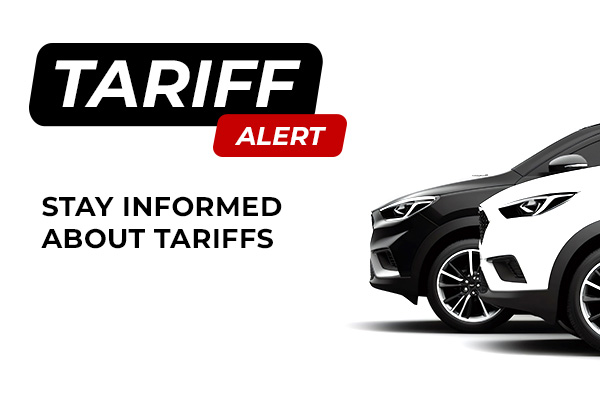Navigating the New Tariff Landscape: How Automakers Are Responding
In our previous blog, we discussed the implementation of the 25% tariff on imported vehicles and what it might mean for car buyers. Now that these tariffs have officially taken effect as of April 3rd, we want to keep our Schomp customers informed about how various automakers are responding to these changes and what it means for your vehicle purchase decisions.
Understanding the Current Tariff Situation
The Trump administration's 25% tariff on imported vehicles began on April 3rd, with tariffs on auto parts set to start by May 5th. These changes have prompted various responses from manufacturers, from price adjustments to special incentive programs.
According to industry reports, these tariffs are creating significant impacts across the automotive sector, particularly for vehicles imported from countries such as Japan, Germany, Korea, Mexico, and the United Kingdom.
Manufacturer Responses
Ford
Ford launched "From America, for America," offering employee pricing to all customers through June 2nd. U.S.-built models (Bronco, Escape, Expedition, Explorer, F-150, Mustang, Ranger) avoid direct tariff impacts, while Mexican-built vehicles (Bronco Sport, Maverick, Mustang Mach-E) will be affected.
Honda
Many Honda models are built in the U.S. (Accord, Odyssey, Passport, Pilot, Ridgeline) and are largely protected from tariffs. The Civic and CR-V have production split between the U.S. and Canada, with only the Type R hatchback imported from Japan.
MINI
All MINI vehicles are subject to tariffs as Cooper models are built in the UK and Countryman models in Germany. Despite pricing challenges, MINI continues to offer exceptional quality, driving dynamics, and distinctive styling.
Nissan
Nissan has reduced prices on its U.S.-built models: Rogue SUV ($640-$1,930 cuts) and Pathfinder ($670-$1,170 cuts). Models imported from Mexico (Kicks, Sentra, Versa) will be subject to tariffs.
Mazda
Only the CX-50 and CX-50 Hybrid are built in the U.S. and shielded from tariffs. All other models are imported from Mexico (CX-30, some Mazda3s) or Japan (CX-5, CX-70, CX-90, MX-5 Miata, remaining Mazda3s).
Hyundai
U.S.-built models (Ioniq 5, Santa Cruz, Santa Fe) are largely protected. The Tucson has split production between U.S. and Mexico. Korean-built models (Elantra, Sonata, Kona, Palisade, Venue, Accent) will face tariffs, though Hyundai currently has no immediate plans to raise prices.
BMW
BMW will absorb tariff costs for Mexican-built models (3-Series Sedan, 2-Series Coupe, M2) through May 1st. German and Austrian-built models will be subject to tariffs, while American-built X-models (X3, X4, X5, X6, X7, XM) offer options with minimal tariff impact.
Subaru
U.S.-built models (Ascent, Legacy, Outback, select Crosstrek models) will largely avoid tariffs. Japanese-built models (most Crosstreks, Forester, Impreza, WRX/STI, BRZ, Solterra) will face increased costs, though Subaru is leveraging experience with past market disruptions to maintain stability.
What This Means for You
- Consider U.S.-Built Models: Vehicles manufactured domestically face minimal tariff impacts.
- Pre-Tariff Inventory Savings: Vehicles in our current inventory that arrived before April 3rd aren't subject to tariff increases.
- Special Programs: Take advantage of manufacturers' responses like Ford's employee pricing or BMW's temporary tariff absorption.
The Schomp Commitment
Our dealerships remain committed to transparent pricing and exceptional value. Our One Price. One Person. One Hour.® philosophy ensures you'll always receive straightforward information about your vehicle purchase.
We encourage you to visit our showrooms soon, particularly if you're interested in imported models that might see pricing adjustments. Our sales teams are ready to help you navigate these changes confidently.
Information current as of April 7, 2025. Tariff situations and manufacturer responses may change.


